Whether you’re just starting a business or already have experience, there’s one habit that successful people share — they read. The best business people, strategists, and inventors in the world can be found through books. The best entrepreneur books to read that can change the way you lead, think, and expand your company are included in this extensive collection.
This list of the best entrepreneur books includes timeless classics, personal development must-reads, startup guides, and leadership masterworks. It’s organized into categories to help you find exactly what you need at each stage of your entrepreneurial journey.
1. Mindset and Personal Development Books for Entrepreneurs
Success begins with the right mindset. Entrepreneurship is not just about ideas. It’s about attitude, action, and continuous learning. Thought leaders emphasize the importance of reading and self-mastery as key drivers of entrepreneurial success.
Here are some of the best entrepreneur books that shape the inner game of entrepreneurs.
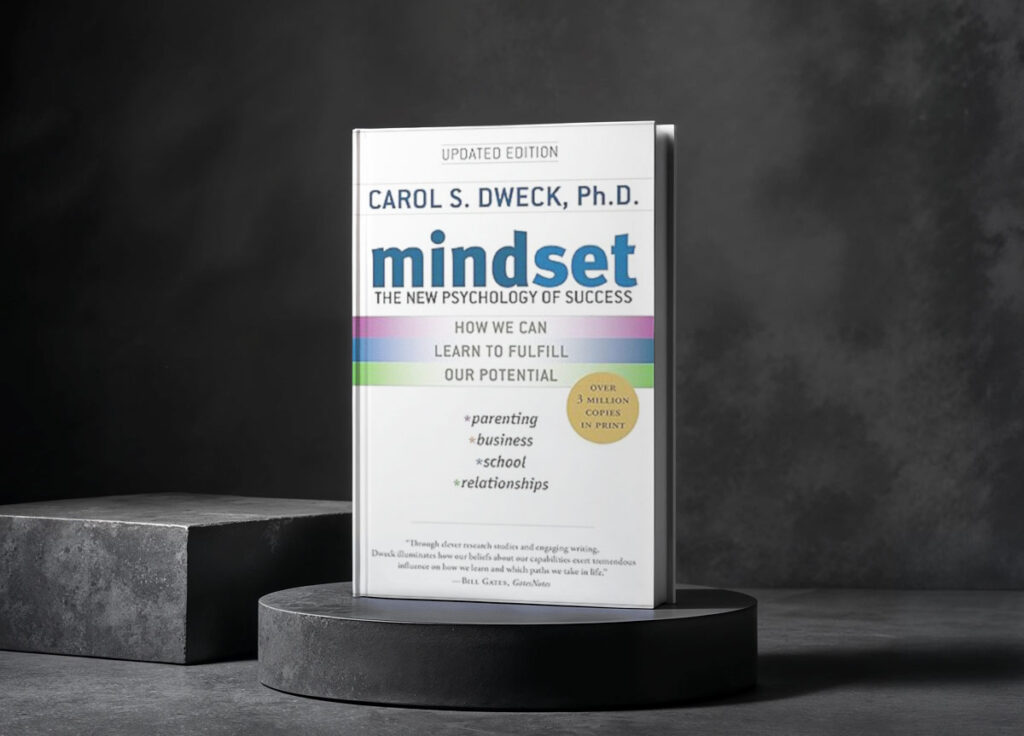
1.1 Think and Grow Rich – Napoleon Hill
A timeless classic that emphasizes the power of desire, faith, and persistence to achieve personal and professional success. Hill shares 13 principles drawn from interviews with successful individuals of his time.
1.2 The 7 Habits of Highly Effective People – Stephen R. Covey
This self-improvement manual lists essential behaviours that promote honesty, self-control, and long-range planning. Covey combines realistic methods for human development with ethical character values.
1.3 Mindset: The New Psychology of Success – Carol S. Dweck
Discusses how a growth mindset may unlock personal and professional potential. Dweck’s research shows that intelligence and talent are just the starting point. This is one of the most popular books for new entrepreneurs.
1.4 Atomic Habits – James Clear
Focuses on the power of small, incremental changes to build life-changing habits. Clear provides a science-backed system for breaking bad habits and making good ones stick.
1.5 The Power of Now – Eckhart Tolle
Teaches the importance of living in the present moment to achieve mental clarity and peace. Tolle guides readers on how to break free from ego-driven thought patterns.
1.6 Deep Work – Cal Newport
Makes the case for focused, distraction-free work in a world of interruptions. Newport offers practical strategies to cultivate a deep work ethic for success in high-performance environments.
1.7 The Subtle Art of Not Giving a F*ck – Mark Manson
To assist readers in concentrating on what matters, it rejects toxic positivity and embraces life’s challenges. Manson’s brutal honesty strengthens resolve and makes beliefs clear.
1.8 Can’t Hurt Me – David Goggins
A remarkable narrative and encouraging guide on overcoming hardship. Goggins recounts his rise from child abuse to Navy SEAL and ultra-endurance athlete.
1.9 The War of Art – Steven Pressfield
Explores creatives’ internal aversion to success. Pressfield provides excellent guidance for writers, artists, and business owners on how to overcome procrastination.
1.10 Grit: The Power of Passion and Perseverance – Angela Duckworth
Use research and firsthand accounts to demonstrate that perseverance and passion are more important than physical ability. Duckworth reveals that grit is the key to long-term success.
2. Startup and Business Strategy books for entrepreneurs
These entrepreneur books give founders and future CEOs frameworks to start and grow a firm. Keep reading to discover more of these best entrepreneur books to read.
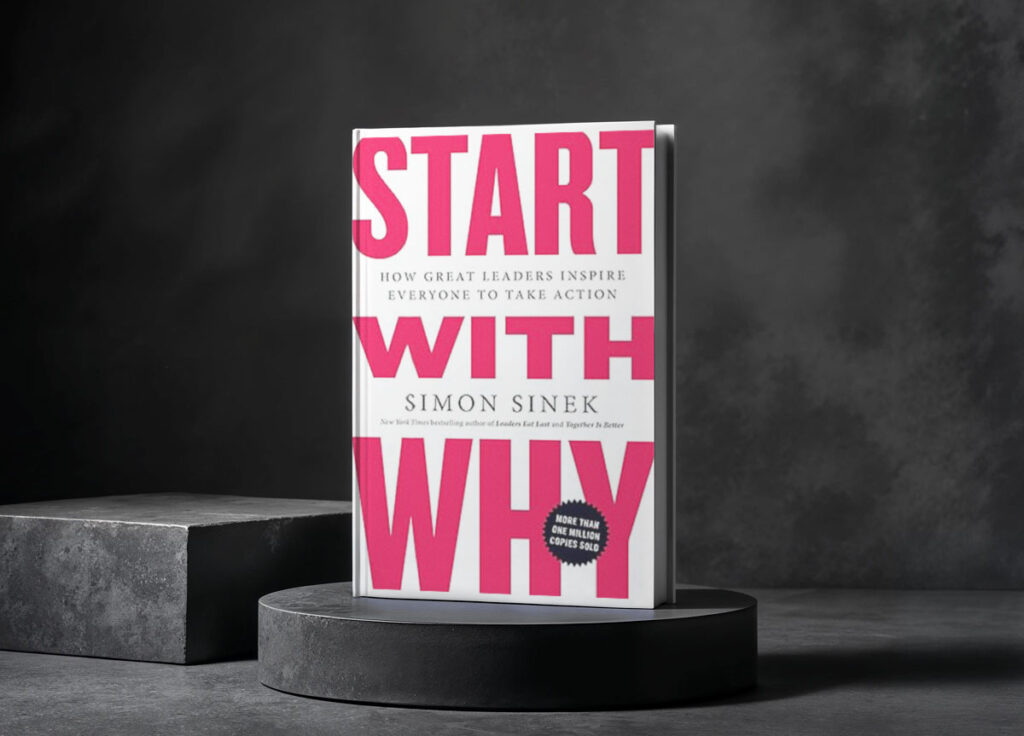
2.1 The Lean Startup – Eric Ries
Builds compelling, feedback-driven startups using the Build-Measure-Learn cycle. Ries promotes validating ideas quickly with minimum viable products to reduce risk and waste.
2.2 The Startup Owner’s Manual – Steve Blank & Bob Dorf
A thorough, step-by-step guide to customer discovery and lean startup techniques. It acts as a helpful manual for business owners navigating the initial phases of a startup.
2.3 Disciplined Entrepreneurship – Bill Aulet
Describes a 24-step process for making an innovative startup that does well. The book breaks down complex entrepreneurial concepts into structured and actionable parts.
2.4 Start With Why – Simon Sinek
Examines how effective leaders motivate people to take action by sharing the underlying mission of their company. Businesses may clearly identify their objective with the aid of Sinek’s “Golden Circle” framework.
2.5 The Mom Test – Rob Fitzpatrick
Teaches entrepreneurs how to get honest, actionable customer feedback without falling for false positives. The book emphasizes asking the right questions — even to your mom. No doubt, this is one of the best entrepreneur books to read.
2.6 Blue Ocean Strategy – W. Chan Kim & Renée Mauborgne
Provides a structure for creating a marketplace that is uncontested and where competition is irrelevant. It helps businesses innovate by value creation rather than price wars.
2.7 The Art of the Start 2.0 – Guy Kawasaki
A modern business bible that covers everything from getting investors to getting started to growing. Kawasaki gives new businesses practical advice and tricks for starting a business.
2.8 Rework – Jason Fried & David Heinemeier Hansson
Challenges accepted business wisdom by offering unorthodox innovation, growth, and productivity suggestions. It’s a philosophy for doing less but doing more, particularly for small firms.
2.9 Venture Deals – Brad Feld & Jason Mendelson
Clarifies the complex world of venture capital and startup finance. A must-read for founders planning for fundraising, term sheets, and investor negotiations.
3. Innovation and Creativity books for entrepreneurs
Creativity drives innovation. These are the popular entrepreneur books to read –

3.1 Creative Confidence – Tom & David Kelley
Encourages everyone to tap into their innate creativity and overcome fear of failure. The Kelley brothers use IDEO’s design thinking approach to tackle issues in novel ways.
3.2 Steal Like an Artist – Austin Kleon
A short yet intriguing book that encourages creative borrowing and challenges the idea of uniqueness. Kleon emphasises remixing concepts to create your distinct voice.
3.3 How to Fly a Horse – Kevin Ashton
Explores the myth of creative genius, arguing that innovation is more about effort than inspiration. Ashton uses historical stories to prove that anyone can be creative with persistence.
3.4 Originals: How Non-Conformists Move the World – Adam Grant
Demonstrates how successful entrepreneurs question the status quo and drive change. Grant uses research and stories to show that being “original” is a skill that can be developed.
3.5 The Creative Habit – Twyla Tharp
The renowned choreographer Twyla Tharp offers daily routines and activities that foster creativity. It’s a helpful manual for developing self-control during the creative process.
3.6 Lateral Thinking – Edward de Bono
Introduces the concept of lateral thinking—approaching problems from new angles rather than using linear logic. A must-read for entrepreneurs aiming to develop unconventional solutions.
3.7 Made to Stick – Chip Heath & Dan Heath
Breaks down why some ideas spread while others fade, offering a formula to make messages “stick.” The book introduces the SUCCESs framework to craft unforgettable content.
3.8 The Innovator’s Dilemma – Clayton M. Christensen
Explains why disruptive innovation frequently causes successful businesses to fail. Christensen describes how entrepreneurs might use this conundrum to upend whole sectors.
3.9 Where Good Ideas Come From – Steven Johnson
Examines the historical and environmental elements that contribute to innovative ideas. Johnson reveals that innovation thrives in connected, collaborative systems.
3.10 The Medici Effect – Frans Johansson
The book suggests that innovative, new ideas often emerge when different cultures and fields of knowledge converge. The author, Frans Johansson, demonstrates how entrepreneurs can combine diverse ideas and experiences to create something new. He explains how this “cross-pollination” can lead to powerful innovations.
4. Marketing and Branding books for entrepreneurs
These top entrepreneur books detail branding, customer psychology, and creating businesses that people will remember.
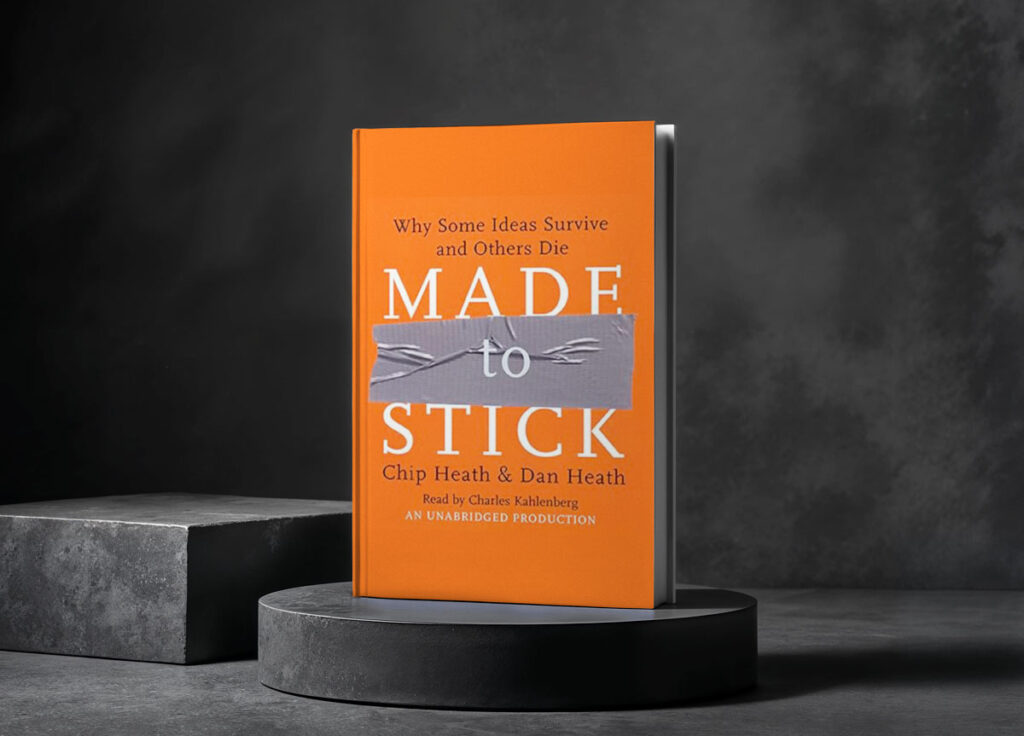
4.1 Influence: The Psychology of Persuasion – Robert B. Cialdini
This groundbreaking treatise on the science of persuasion encompasses six key principles: likability, authority, consistency, scarcity, social proof, and reciprocity. Cialdini demonstrates how these strategies influence human behavior and purchasing decisions.
4.2 Building a StoryBrand – Donald Miller
Teaches businesses how to clarify their message using a storytelling framework. Miller shows you how to make your business the leader and the consumer the hero, boosting sales and customer loyalty. This is one of the best entrepreneur books to read.
4.3 Contagious: How to Build Word of Mouth in the Digital Age – Jonah Berger
Explains the science underlying the virality of some items. Berger lists six principles (STEPPS) that increase the shareability and contagiousness of concepts, goods, or communications.
4.4 Made to Stick – Chip Heath & Dan Heath
Investigates the causes of some conceptions’ retention and others’ forgetfulness. The SUCCESs framework—Simple, Unexpected, Concrete, Credible, Emotional, and Stories—is offered by the Heath brothers as a tool for creating powerful messages.
4.5 Purple Cow – Seth Godin
Godin asserts that being extraordinary is the only way to stand out in a crowded market. He encourages creating truly different products—like a purple cow in a field of brown ones.
4.6 This Is Marketing – Seth Godin
Challenges conventional marketing by utilising connection, emotion, and storytelling. Godin underlines that marketing is about targeting a specific audience rather than reaching everyone.
4.7 Positioning: The Battle for Your Mind – Al Ries & Jack Trout
An iconic work on brand positioning that examines how to create a unique impression on your target market. Ries and Trout offer tactics for setting your business apart in a crowded market.
4.8 Jab, Jab, Jab, Right Hook – Gary Vaynerchuk
Shows how to craft and time social media content tailored to each platform. Gary Vee emphasizes giving value (jabs) before asking for the sale (right hook).
4.9 Hooked: How to Build Habit-Forming Products – Nir Eyal
Explains the psychology of why people continue to utilise particular things. Eyal presents the Hook Model, a four-step procedure that includes investment, action, variable reward, and trigger.
4.10 The 22 Immutable Laws of Marketing – Al Ries & Jack Trout
Outline 22 essential concepts for effective marketing, ranging from the Law of Perception to the Law of Leadership. These laws are easy to understand and highly practical for building strong brands.
5. Sales and Negotiation books for entrepreneurs
Master the art of persuasion and closing deals with these top sales reads.
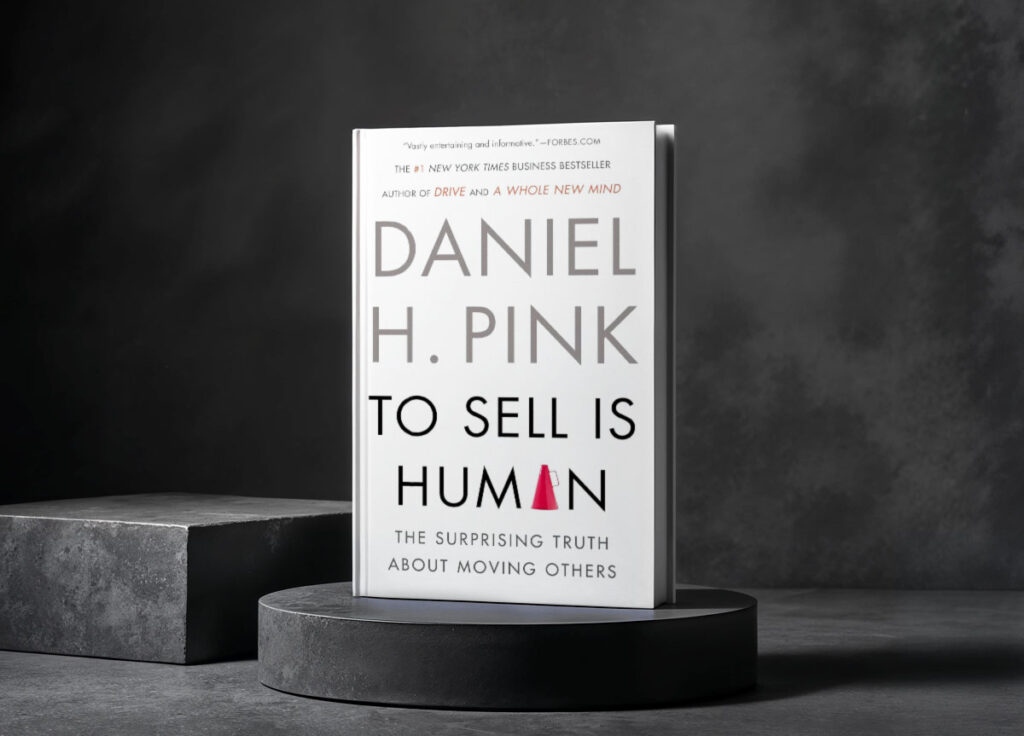
5.1 Sell Like Crazy – Sabri Suby
A high-energy, no-fluff guide to creating wildly successful sales funnels. Suby breaks down online marketing into practical, scalable steps for explosive business growth.
5.2 The Psychology of Selling – Brian Tracy
Tracy dives into the mental triggers that drive purchasing decisions. A classic playbook for boosting confidence, rapport, and conversions in sales.
5.3 SPIN Selling – Neil Rackham
Based on research, this book introduces the SPIN method—Situation, Problem, Implication, and Need-Payoff. It’s ideal for handling complex B2B sales.
5.4 To Sell Is Human – Daniel H. Pink
Pink redefines sales as a universal human skill that is relevant to everyone. He combines social science with real-world techniques for non-sales professionals as well.
5.5 The Challenger Sale – Matthew Dixon & Brent Adamson
This book champions the “Challenger” rep who teaches, tailors, and takes control. It challenges traditional relationship-building sales models.
5.6 Pitch Anything – Oren Klaff
Using neuroscience, Klaff presents the STRONG method for powerful, high-stakes pitching. It’s about owning the frame and controlling the sale.
5.7 Never Split the Difference – Chris Voss
Former FBI negotiator Chris Voss discusses effective negotiation strategies. His tactics are predicated on mirroring, empathy, and psychological leverage.
5.8 Secrets of Closing the Sale – Zig Ziglar
Ziglar offers timeless advice and real-world examples to improve persuasive abilities. It’s essential reading for anyone who wants to learn how to effectively close and ask the right questions.
5.9 Way of the Wolf – Jordan Belfort
Belfort reveals his straight-line system for selling anything to anyone. It’s intense, persuasive, and packed with sales psychology hacks.
5.10 The Ultimate Sales Machine – Chet Holmes
This is one of the popular digital entrepreneur books. It will teach how to master 12 key sales and business growth strategies. Holmes emphasizes focus, education-based marketing, and discipline.
6. Leadership and Management books for entrepreneurs
Strong leaders build strong businesses. Learn to lead effectively with these timeless reads. These are some of the best entrepreneur books in India –
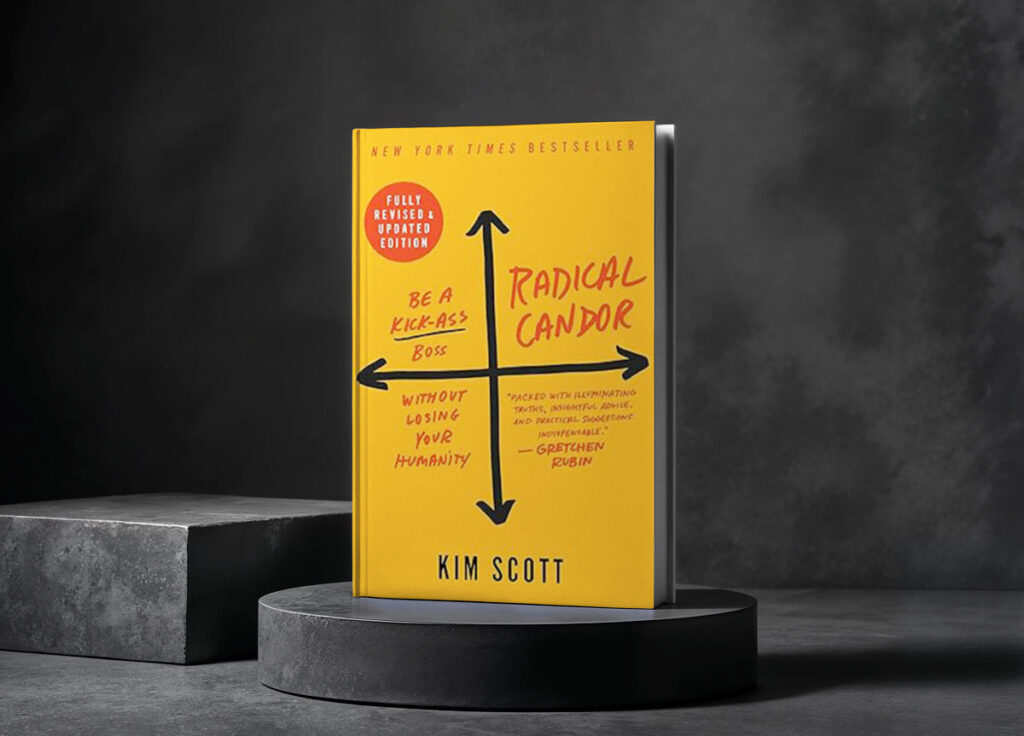
6.1 Leaders Eat Last – Simon Sinek
Sinek examines how effective leaders prioritise their teams to foster loyalty and trust. A compelling look into the biology of leadership and team cohesion.
6.2 Good to Great – Jim Collins
Collins reveals why some companies leap greatness while others don’t. It presents ideas with scientific support, such as Level 5 Leadership and the Hedgehog Principle.
6.3 The 5 Levels of Leadership – John C. Maxwell
Maxwell offers a clear path from positional leadership to the highest level of influence. Each level builds on the last, helping leaders grow step by step.
6.4 Radical Candor – Kim Scott
A practical guide to giving feedback that’s both kind and clear. Scott emphasizes caring personally while challenging directly to foster team growth.
6.5 Dare to Lead – Brené Brown
Brown blends vulnerability with courage to redefine modern leadership. She advocates for brave, honest leadership that builds resilient, empowered teams.
6.6 Drive – Daniel H. Pink
Pink examines the three factors that drive people in the workplace: purpose, autonomy, and mastery. It is a departure from conventional carrot-and-stick approaches that have a scientific backing.
6.7 The Five Dysfunctions of a Team – Patrick Lencioni
Lencioni exposes common team errors with a fictitious story. It’s a robust framework for encouraging results, accountability, and trust.
6.8 Extreme Ownership – Jocko Willink & Leif Babin
Veteran Navy SEALs write this book and prepare leaders to take full responsibility. Its battlefield-tested principles apply powerfully in business settings.
6.9 Trillion Dollar Coach – Eric Schmidt et al.
An homage to Bill Campbell, the renowned instructor who founded tech behemoths like Google and Apple. Offers leadership lessons from Silicon Valley’s top minds.
6.10 Multipliers – Liz Wiseman
Wiseman contrasts “Diminishers” with “Multipliers”—leaders who amplify the intelligence of others.—A great read on maximizing team potential and performance.
7. Finance and Money Management books for entrepreneurs
These are some of the best books for entrepreneurs to help business owners become more financially literate and build successful companies.
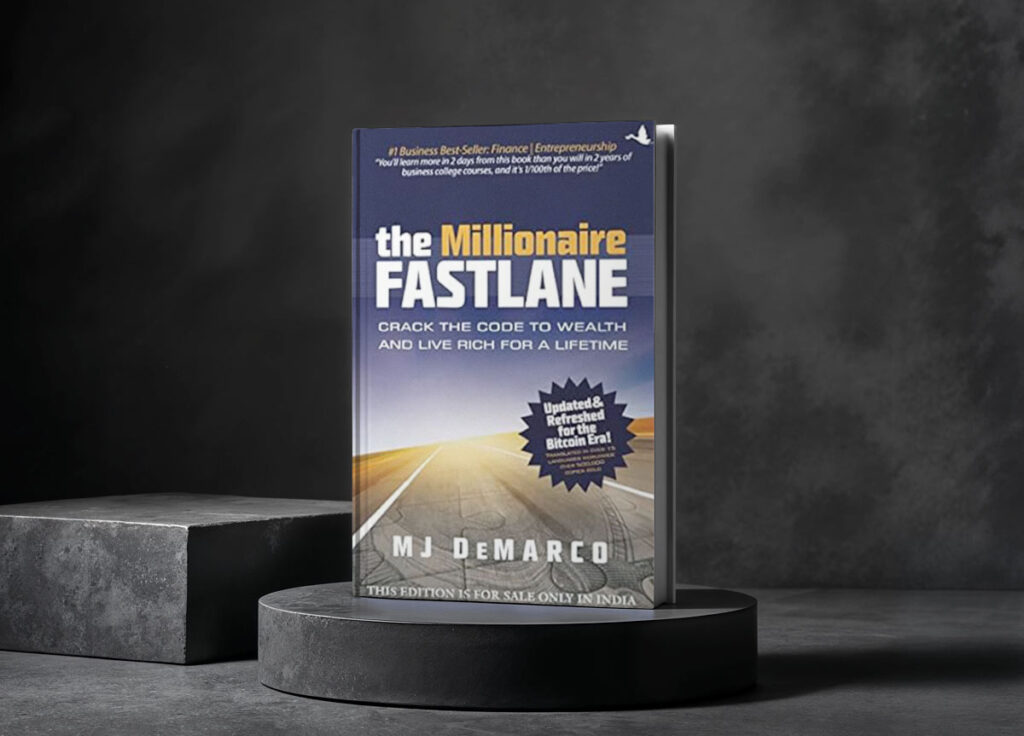
7.1 Rich Dad Poor Dad – Robert T. Kiyosaki
To illustrate the differences in the thinking of the wealthy, Kiyosaki contrasts the financial mindsets of his two “dads.” It’s a foundational read on assets, liabilities, and wealth-building through wise investing.
7.2 Profit First – Mike Michalowicz
Michalowicz flips traditional accounting by prioritizing profit before expenses. It’s a practical, business-friendly method for controlling cash flow and maintaining profitability.
7.3 The Intelligent Investor – Benjamin Graham
A timeless classic on value investing, risk management, and long-term thinking. Graham’s principles form the foundation of Warren Buffett’s investment strategy.
7.4 Money: Master the Game – Tony Robbins
Robbins interviews top investors and distills their wisdom into actionable steps. The book provides a 7-step plan to achieve financial freedom.
7.5 The Millionaire Fastlane – MJ DeMarco
DeMarco debunks the slow path to wealth and promotes building scalable, high-impact businesses. It’s about leveraging time, control, and speed for financial independence.
7.6 Your Money or Your Life – Vicki Robin
A guide to transforming your relationship with money and living with intention. Robin emphasizes mindful spending, financial independence, and values-based living.
7.7 The Richest Man in Babylon – George S. Clason
Told through ancient parables, this book offers timeless financial wisdom. It covers saving, investing, and living below your means in a storytelling format.
7.8 Financial Intelligence for Entrepreneurs – Karen Berman & Joe Knight
This is one of the must-read books for entrepreneurs. It demystifies financial statements and metrics for business owners. A great resource to understand what your numbers mean—and how to use them to grow.
8. Global Business and Economics books for entrepreneurs
Understanding global trends is essential in today’s interconnected world –
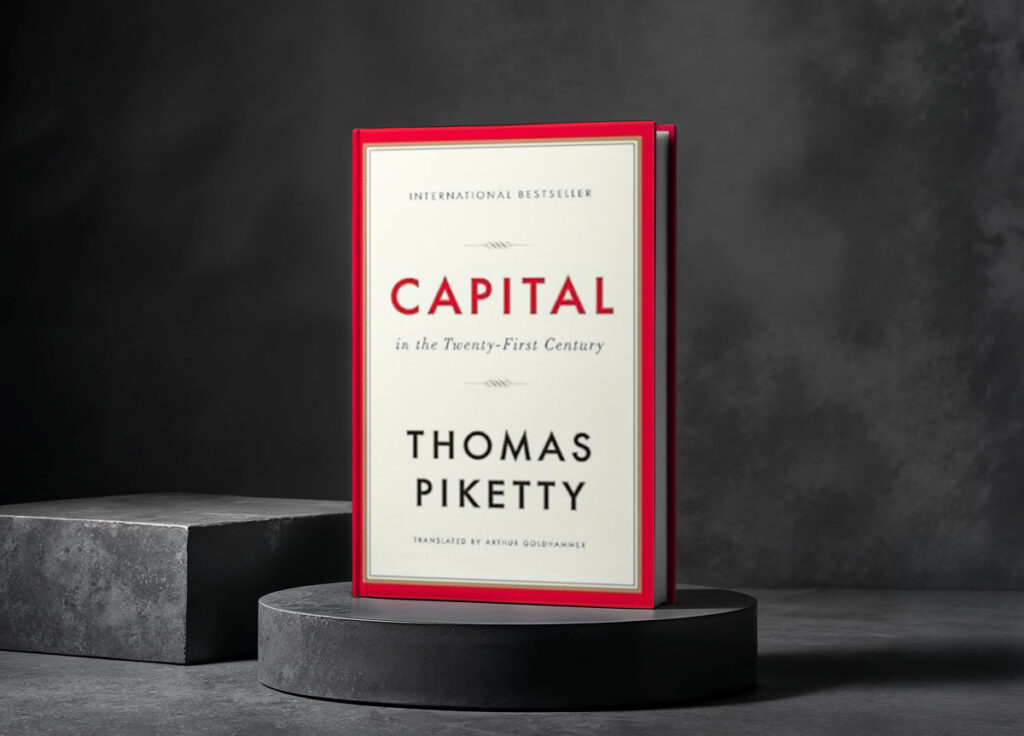
8.1 The World is Flat – Thomas L. Friedman
Friedman explains how globalization and technology have leveled the economic playing field. A deep dive into how interconnected systems are reshaping business and opportunity.
8.2 Freakonomics – Steven D. Levitt & Stephen J. Dubner
This unconventional book explores hidden incentives behind real-world behavior. It blends economics with storytelling to challenge our understanding of cause and effect.
8.3 Outliers – Malcolm Gladwell
Gladwell examines the hidden factors that contribute to extraordinary success. He shows that talent alone doesn’t make an outlier from culture to timing.
8.4 The Tipping Point – Malcolm Gladwell
This book examines how small actions can lead to profound changes. Gladwell introduces concepts like connectors, mavens, and stickiness to explain social epidemics.
8.5 Capital in the Twenty-First Century – Thomas Piketty
Piketty analyzes global wealth inequality through history and complex data. A landmark economic study argues for taxing capital to reduce disparities.
8.6 Principles: Life and Work – Ray Dalio
Bridgewater founder Ray Dalio shares the guiding principles behind his hedge fund’s success. It’s part memoir, part management manual, full of hard-earned wisdom.
8.7 Shoe Dog – Phil Knight
A candid, gripping memoir by Nike’s co-founder, chronicling the brand’s chaotic rise. It’s a behind-the-scenes look at resilience, risk, and entrepreneurship. Here is another of the best entrepreneur books to read.
8.8 Alibaba: The House That Jack Ma Built – Duncan Clark
Clark tells how Jack Ma turned Alibaba into a global powerhouse. It also provides a broader look at China’s economic rise and digital transformation.
9. Tech and Future-Ready Thinking books for entrepreneurs
To learn more about good entrepreneur books, keep reading this list –
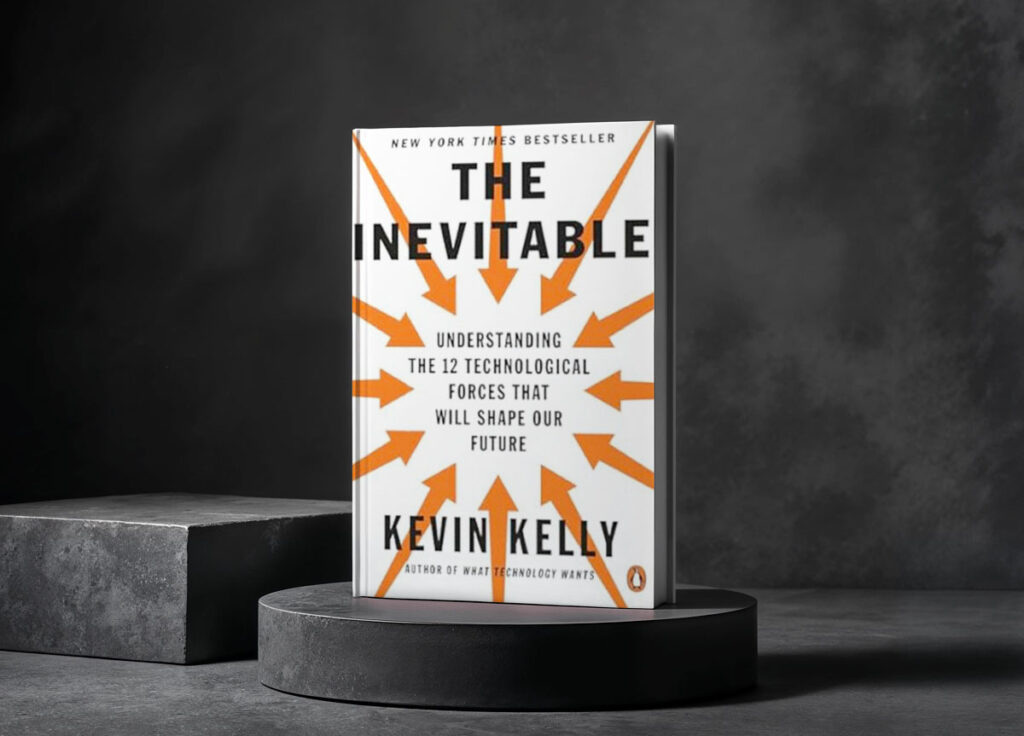
9.1 Life 3.0 – Max Tegmark
Tegmark explores the future of artificial intelligence and its impact on civilization. It’s a thought-provoking roadmap for how humanity might coexist with superintelligent machines.
9.2 The Singularity Is Near – Ray Kurzweil
Kurzweil predicts a future where humans and machines merge, driven by exponential tech. A bold, deeply analytical look at AI, biotechnology, and the coming singularity.
9.3 AI Superpowers – Kai-Fu Lee
Lee compares the AI race between China and the U.S., highlighting different strengths. He also raises urgent questions about automation, jobs, and humanity’s future.
9.4 The Inevitable – Kevin Kelly
Kelly outlines 12 tech trends shaping the next 30 years. A vision of how developments like AI, AR, and blockchain will redefine how we live and work.
9.5 Exponential Organizations – Salim Ismail
This book introduces a new breed of companies that scale rapidly by leveraging tech and data. Learn how agility, experimentation, and purpose drive future-ready businesses.
9.6 The Code Breaker – Walter Isaacson
Isaacson tells the story of Jennifer Doudna and the CRISPR revolution. A fascinating mix of science, ethics, and innovation in genetic editing.
9.7 Digital Minimalism – Cal Newport
Here are the best entrepreneur books to read. Newport advocates for a focused, intentional use of technology. It’s a guide to reclaiming your attention in a world of constant digital noise.
9.8 Hooked – Nir Eyal
Eyal breaks down the psychology behind habit-forming products. Essential for entrepreneurs building tech that engages users and keeps them coming back.
10. Biographies & Memoirs of Entrepreneurs
Here is a list of the best entrepreneur books to read –

10.1 Elon Musk – Walter Isaacson
This book gives a detailed look at Elon Musk’s life, from his work with PayPal and Tesla to SpaceX and more. Author Walter Isaacson explores Musk’s strong ambition, intelligence, and the many controversies surrounding him as he shapes the future.
10.2 Steve Jobs – Walter Isaacson
This biography reveals the genius and flaws behind Apple’s co-founder based on exclusive interviews. A riveting look at creativity, obsession, and innovation.
10.3 Shoe Dog – Phil Knight
Nike’s co-founder shares his raw, honest journey from selling shoes out of a trunk to building a global brand. It’s about grit, risk, and the soul of entrepreneurship.
10.4 Grinding It Out – Ray Kroc
Kroc tells how he turned a small burger joint into the McDonald’s empire at 52. A true story of persistence, systems thinking, and visionary growth.
10.5 The Everything Store (Jeff Bezos) – Brad Stone
A behind-the-scenes account of how Jeff Bezos built Amazon from a garage to global domination. Stone paints a complex picture of ambition, innovation, and disruption.
10.6 Onward – Howard Schultz
Schultz recounts Starbucks’s journey through crisis and reinvention, focusing on values-driven leadership. A robust case for blending purpose with business success. These are the best entrepreneur books to read.
10.7 Losing My Virginity – Richard Branson
Branson’s adventurous memoir is as unconventional as his life. It’s packed with lessons on risk, resilience, and building brands with bold personality.
10.8 The Snowball (Warren Buffett) – Alice Schroeder
A thorough, authorized biography of the Oracle of Omaha. Schroeder dives deep into Buffett’s life, investing philosophy, and personal quirks.
10.9 That Will Never Work – Marc Randolph
Netflix co-founder Marc Randolph shares the startup’s scrappy early days. It’s an inspiring story about experimentation, rejection, and creative vision.
11. Productivity and Time Management books for entrepreneurs
Get more done with less stress using these entrepreneur-approved time hacks. Here are some of the best books for successful entrepreneurs –

11.1 The 4-Hour Workweek – Tim Ferriss
Starting with one of the best entrepreneur books to read. Ferriss challenges the 9–5 grind with bold ideas on outsourcing, automation, and mini-retirements. A life-design manifesto for working smarter, not harder.
11.2 Essentialism – Greg McKeown
McKeown teaches the disciplined pursuit of less—focusing only on what truly matters. It’s about doing fewer things better and saying no with purpose.
11.3 Getting Things Done – David Allen
Allen’s GTD system is a game-changer for managing tasks, goals, and mental clarity. A structured approach to organizing life and work with less stress.
11.4 Eat That Frog! – Brian Tracy
Tracy helps you conquer procrastination by tackling your most complex tasks first. Simple, actionable advice to boost daily productivity and focus.
11.5 Make Time – Jake Knapp & John Zeratsky
This book, created by former Google and YouTube designers, offers 87 tactics to reclaim your day. It’s practical, flexible, and rooted in real-life experiments.
11.6 The One Thing – Gary Keller
Keller shows how focusing on the most important task daily leads to extraordinary results. It’s a productivity framework built on clarity and purpose.
11.7 168 Hours – Laura Vanderkam
Vanderkam reframes time management by zooming out to the entire week. She helps you prioritize what matters and uncover hidden time for work and life.
11.8 Free to Focus – Michael Hyatt
Here is another of the best entrepreneur books to read. Hyatt delivers a step-by-step system to cut distractions and get results. It’s about regaining control over your time and focusing on high-leverage activities.
Final Thoughts
The entrepreneurship journey is uncertain, but these books of successful entrepreneurs serve as guiding lights. Whether you’re trying to validate your idea, improve your leadership, grow your brand, or stay sane, the right book can change everything at the right time.
Start where you are. Pick one. Read deeply. And most importantly, apply what you learn.
“Not all readers are leaders, but all leaders are readers.” — Harry S. Truman
FAQs
1. Who is the No.1 entrepreneur in the world?
Although there is no official ranking, many consider Elon Musk to be the most influential entrepreneur in the world today. He’s the founder or co-founder of several groundbreaking companies, such as Tesla (electric vehicles), SpaceX (space exploration), Neuralink (brain-machine interface), The Boring Company (infrastructure), and X (formerly Twitter). His ability to innovate across industries, take risks, and build scalable businesses has earned him a global reputation as a visionary entrepreneur.
2. What are the top 10 business books every entrepreneur should read?
Here’s a list of 10 influential business books that provide insights into leadership, innovation, mindset, and strategy:
The Lean Startup by Eric Ries – Teaches how to build a startup using lean principles, rapid testing, and validated learning.
Zero to One by Peter Thiel – Explores how to create a monopoly by building unique products or businesses.
Think and Grow Rich by Napoleon Hill – Focuses on the mindset and habits that lead to financial success.
Start with Why by Simon Sinek – Encourages purpose-driven leadership in business.
Good to Great by Jim Collins – Studies companies that transitioned from good to exceptional and identifies key success factors.
Rich Dad Poor Dad by Robert Kiyosaki – Explores financial education and building assets for long-term wealth.
The $100 Startup by Chris Guillebeau – Offers practical advice for starting a business with little capital.
The Hard Thing About Hard Things by Ben Horowitz – Shares real-world challenges of running a startup and how to navigate them.
Blue Ocean Strategy by W. Chan Kim & Renée Mauborgne – Shows how to break away from competition by creating new markets.
Crushing It! by Gary Vaynerchuk – Discusses personal branding and social media strategies to grow a business.3. What are the 5 C’s of an entrepreneur?
The 5 C’s represent essential traits that entrepreneurs must possess to succeed:
Confidence – Belief in your vision and decisions even when facing uncertainty.
Courage – The willingness to take risks and face potential failure head-on.
Creativity – Finding innovative solutions and thinking outside the box.
Commitment – Staying dedicated through the highs and lows of entrepreneurship.
Collaboration – Working well with partners, teams, and customers to build something impactful.4. What are the 5 P’s of an entrepreneur?
The 5 P’s summarize the core principles that guide an entrepreneur’s journey:
Passion – A deep love for your idea or industry that fuels your persistence.
Perseverance – The ability to keep going despite setbacks or slow progress.
Planning – Crafting a well-thought-out strategy for operations, growth, and finances.
Problem-Solving – Turning challenges into opportunities with a proactive mindset.
People Skills – Communicating, networking, and building relationships effectively.5. Is 30 too late to become an entrepreneur?
No. Many successful entrepreneurs started well after 30. For instance, Ray Kroc joined McDonald’s at age 52, and Vera Wang entered the fashion industry at 40. In your 30s, you often have more experience, better decision-making ability, and a clearer understanding of your goals. Age is not a limitation. It’s how you leverage your skills, mindset, and resources that matters.
6. What is the best book for an entrepreneur?
While it depends on your goals, “The Lean Startup” by Eric Ries is often considered the go-to book for modern entrepreneurs. It explains how to build a product or business by testing assumptions early, reducing waste, and adapting based on customer feedback—ideal for both tech and non-tech startups.
7. What do you mean by entrepreneur?
An entrepreneur is someone who starts, organizes, and manages a business venture with the aim of making a profit. Entrepreneurs often take on higher-than-average risks, innovate in their field, and solve problems. They are also responsible for driving business growth, building teams, and adapting to market trends.
8. Is Elon Musk an entrepreneur?
Yes, Elon Musk is one of the most prominent entrepreneurs of our time. He has founded and led multiple innovative ventures across industries—automotive (Tesla), aerospace (SpaceX), fintech (PayPal, formerly X.com), infrastructure (The Boring Company), and tech (Neuralink). His ability to disrupt markets with bold ideas makes him a textbook example of an entrepreneur.
9. What type of entrepreneur is Bill Gates?
Bill Gates is considered a technopreneur—an entrepreneur who uses technology as the core of their business innovation. As the co-founder of Microsoft, he revolutionized the personal computing industry. Gates had deep technical knowledge. He also had a strong understanding of how to run a business. Together, these skills helped him become one of the most successful entrepreneurs in history.
10. Which study is best for becoming an entrepreneur?
While there’s no single path, the following fields of study provide a strong foundation for entrepreneurship:
Business Administration or Entrepreneurship – Teaches strategy, marketing, operations, and finance.
Marketing or Communications – Helps in branding and reaching your target audience.
Finance or Economics – Important for managing budgets, funding, and scaling.
Computer Science or Engineering – Ideal for tech entrepreneurs looking to build digital products.
Psychology or Behavioral Science – Useful for understanding customer behavior and team dynamics.
Ultimately, practical experience plays a crucial role in establishing a successful business. Meeting and learning from others through networking also adds significant value. Keeping yourself updated and constantly learning new things is just as important. These things can sometimes be even more valuable than having a formal academic degree.

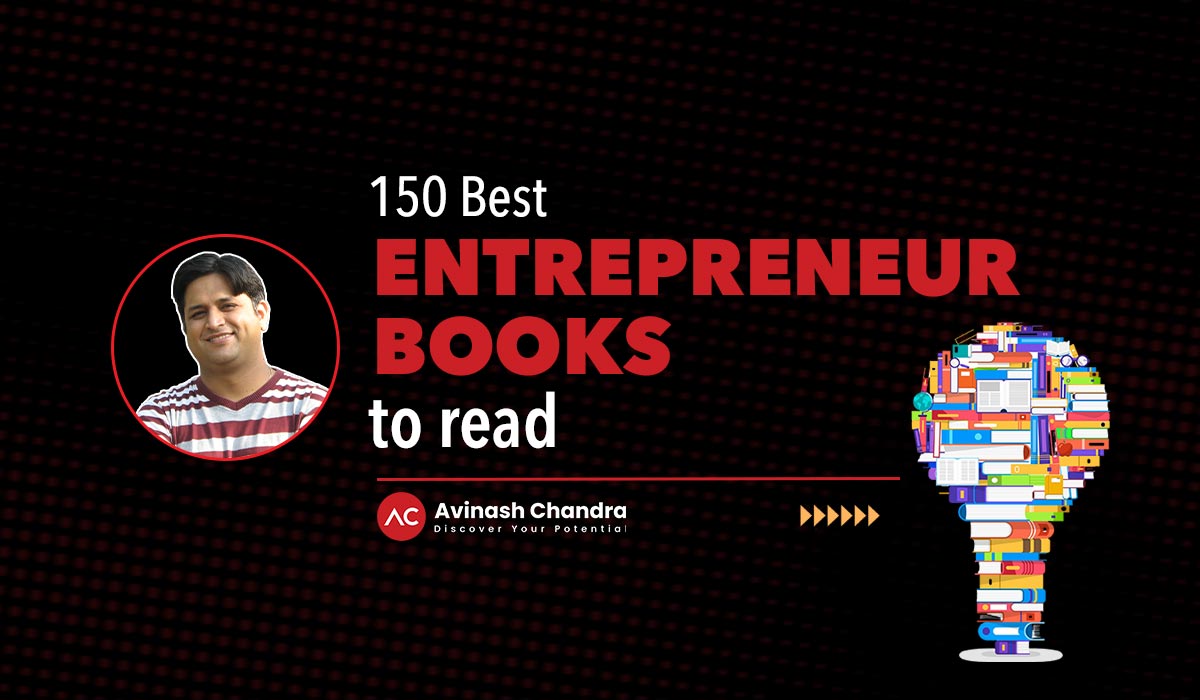
These are really great ideas in regarding blogging.
You have touched some good points here. Any way keep up wrinting.